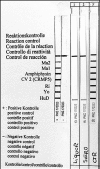MSA Mimic? Rare Occurrence of Anti-Hu Autonomic Failure and Thymoma in a Patient with Parkinsonism: Case Report and Literature Review
- PMID: 29416500
- PMCID: PMC5787932
- DOI: 10.3389/fnins.2018.00017
MSA Mimic? Rare Occurrence of Anti-Hu Autonomic Failure and Thymoma in a Patient with Parkinsonism: Case Report and Literature Review
Abstract
Thymoma is a tumor originating from thymic gland, frequently manifesting with paraneoplastic neurological disorders. Its association with paraneoplastic dysautonomia is relatively uncommon. Here, we describe the challenging case of a 71 year-old female who developed subacute autonomic failure with digestive pseudo-obstruction, dysphagia, urinary tract dysfunction and orthostatic hypotension complicating an underlying extrapyramidal syndrome that had started 3 months before hospital admission. Autonomic symptoms had 2-month course and acutely worsened just before and during hospitalization. Combination of severe dysautonomia and parkinsonism mimicked rapidly progressing multiple system atrophy. However, diagnostic exams showed thymic tumor with positive anti-Hu antibodies on both serum and cerebrospinal fluid. Complete response of dysautonomia to immunoglobulins followed by thymectomy confirmed the diagnosis of anti-Hu-related paraneoplastic neurological syndrome. With regards to extrapyramidal symptoms, despite previous descriptions of paraneoplastic parkinsonism caused by other antineuronal antibodies, in our case no relation between anti-Hu and parkinsonism could be identified. A literature review of published reports describing anti-Hu positivity in thymic neoplasms highlighted that a definite autonomic disease due to anti-Hu antibodies is extremely rare in patients with thymoma but without myasthenia gravis, with only one case published so far.
Keywords: MSA; Parkinson; anti-Hu; dysautonomia; paraneoplastic syndrome.
Figures
Similar articles
-
Parkinsonism and dysautonomia with anti-CV2/CRMP5 associated paraneoplastic neurological syndromes mimicking multiple system atrophy: a case report.BMC Neurol. 2021 Oct 26;21(1):408. doi: 10.1186/s12883-021-02448-6. BMC Neurol. 2021. PMID: 34702214 Free PMC article.
-
[Progressive dysautonomia as initial manifestation of anti-Hu antibody-related syndrome].Neurologia. 2007 Dec;22(10):899-902. Neurologia. 2007. PMID: 18040905 Spanish.
-
Onco-neural antibodies and tumour type determine survival and neurological symptoms in paraneoplastic neurological syndromes with Hu or CV2/CRMP5 antibodies.J Neurol Neurosurg Psychiatry. 2009 Apr;80(4):412-6. doi: 10.1136/jnnp.2007.138016. Epub 2008 Oct 17. J Neurol Neurosurg Psychiatry. 2009. PMID: 18931014 Free PMC article.
-
Thymoma, myasthenia gravis, and other paraneoplastic syndromes.Hematol Oncol Clin North Am. 2008 Jun;22(3):509-26. doi: 10.1016/j.hoc.2008.03.004. Hematol Oncol Clin North Am. 2008. PMID: 18514130 Review.
-
Paraneoplastic myasthenia gravis: immunological and clinical aspects.Eur J Neurol. 2008 Oct;15(10):1029-33. doi: 10.1111/j.1468-1331.2008.02242.x. Epub 2008 Aug 20. Eur J Neurol. 2008. PMID: 18717725 Review.
Cited by
-
Multiple system atrophy.Pract Neurol. 2023 Jun;23(3):208-221. doi: 10.1136/pn-2020-002797. Epub 2023 Mar 16. Pract Neurol. 2023. PMID: 36927875 Free PMC article. Review.
-
Neurodegeneration and the immune system: lessons from autoimmune encephalitis.J Neurol. 2025 Apr 24;272(5):359. doi: 10.1007/s00415-025-13094-0. J Neurol. 2025. PMID: 40274643 Free PMC article. Review.
-
Parkinsonism and dysautonomia with anti-CV2/CRMP5 associated paraneoplastic neurological syndromes mimicking multiple system atrophy: a case report.BMC Neurol. 2021 Oct 26;21(1):408. doi: 10.1186/s12883-021-02448-6. BMC Neurol. 2021. PMID: 34702214 Free PMC article.
-
Homer-3 Antibody Disease: A Potentially Treatable MSA-C Mimic.Mov Disord Clin Pract. 2022 Jan 8;9(2):178-182. doi: 10.1002/mdc3.13404. eCollection 2022 Feb. Mov Disord Clin Pract. 2022. PMID: 35146057 Free PMC article. No abstract available.
-
A Guide for the Differential Diagnosis of Multiple System Atrophy in Clinical Practice.J Parkinsons Dis. 2022;12(7):2015-2027. doi: 10.3233/JPD-223392. J Parkinsons Dis. 2022. PMID: 36057832 Free PMC article. Review.
References
Publication types
LinkOut - more resources
Full Text Sources
Other Literature Sources



